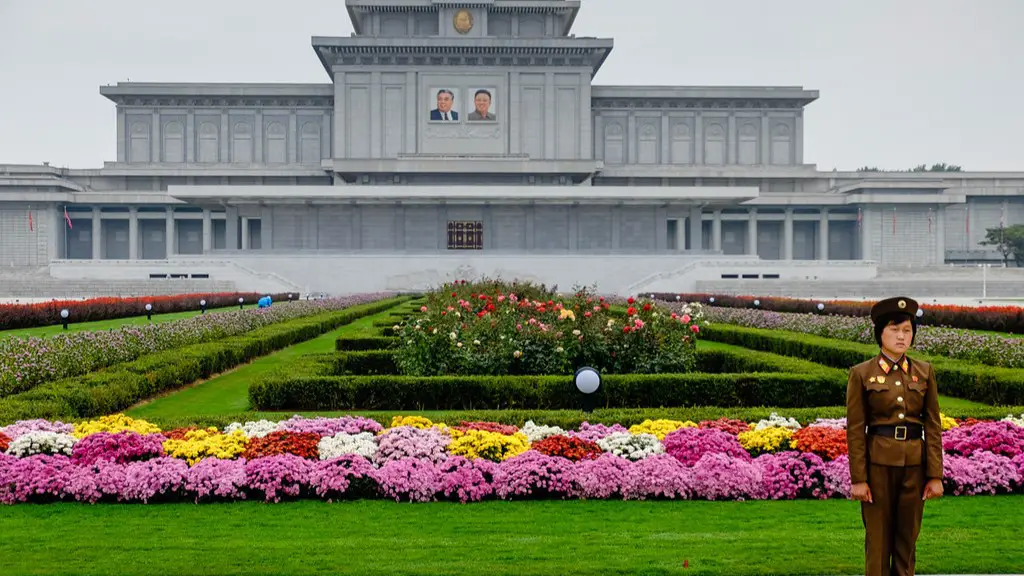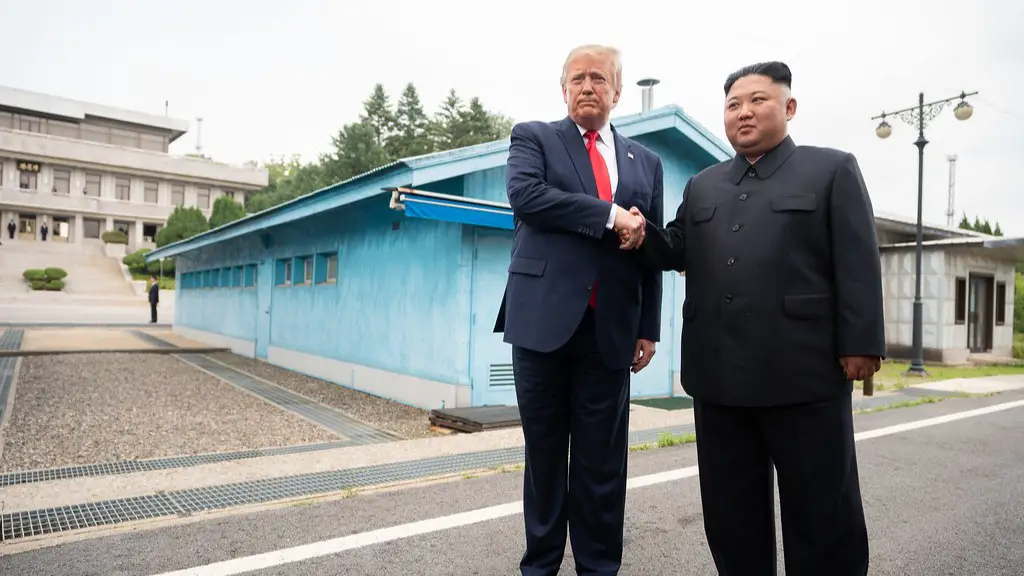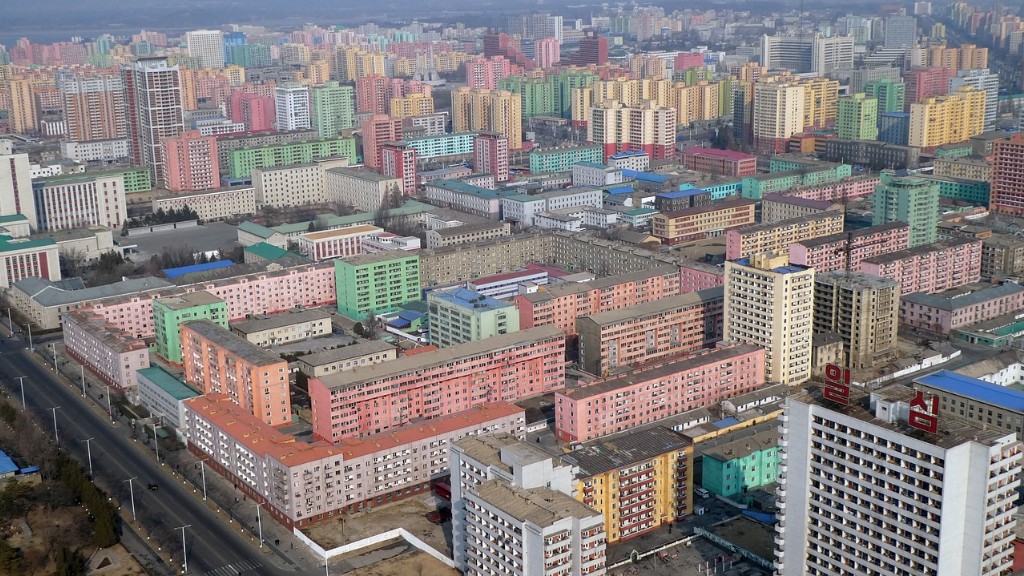Origin and Development of North Korea
North Korea has existed since 1948, the same year in which the Republic of South Korea was officially established. It was founded by on the heels of a conflict between the Soviet Union and the United States for control over the Korean Peninsula during the Cold War. At the conclusion of World War II, the Soviet Union occupied the northern half of the peninsula, while the United States occupied the southern half. Korean fighters from the north had joined forces with the Soviets to fight the Japanese, who had previously colonized Korea.
Following the surrender of Japan, leaders in the northern region, led by Kim Il-sung, sought to consolidate power and create a communist-led North Korea, while leaders in the south sought to create an independent, democratic Republic of Korea. A civil war soon ensued between the two sides, with the Soviets, Chinese, and United States all playing a role in the conflict. In 1950, North Korea launched a surprise attack on South Korea and the Korean War began, lasting until 1953 and leaving the peninsula once again divided.
Kim Il-sung declared North Korea an independent nation in 1948 and proclaimed himself leader of the nation. North Korea soon developed an economy based on a Soviet-style planned economy, with state-run industries and central control of the economy. Its political ideology and governing structure were also heavily influenced by the Soviet Union, as reflected in the juche philosophy of self-reliance, which was heavily promoted by Kim Il-sung.
North Korea Today
Today, North Korea is a reclusive and authoritarian country, led by Kim Jong-un, the grandson of Kim Il-sung. It is one of the world’s most isolated countries, with a heavily sanctioned economy and virtually no contact with the outside world. North Korea has an estimated 25 million people and is known for its fierce suppression of dissent and extreme human rights abuses.
The North Korean economy is centrally planned, with state-run industries and a very low GDP per capita. The country lacks technological and industrial development, and its people are facing food shortages and poverty. Despite this, the government is highly militaristic and heavily invests in nuclear weapons, submarines, and ballistic missiles. This has led to a number of confrontations with the United States, South Korea, and other nations in the region.
Sovereignty and World Relations
North Korea has repeatedly stressed the importance of its sovereignty and an independent foreign policy. This has led to strained relations with much of the world, particularly the United States and South Korea. In recent years, the United States has imposed a number of sanctions on North Korea in an effort to force it to abandon its nuclear weapons program.
North Korea has long sought to improve its relations with the outside world, and talks have been held between North Korea, South Korea, the United States, and other countries to reach a diplomatic solution. However, progress has been slow and North Korea remains largely isolated from the international community.
Reasons Behind North Korea’s Existence
The primary reason why North Korea exists today is due to its unique political ideology, coupled with its strong desire for self-determination and sovereignty. North Korea does not recognize the existence of South Korea and is highly suspicious of the United States, which it believes is seeking to force it to abandon its nuclear weapons program.
The second factor is the extreme measures taken by the North Korean government to ensure its survival. The government has maintained strict control over the population, with severe restrictions on freedom of speech, assembly, and the press. It has also sought to maintain an isolationist policy, with limited trade and diplomatic relations with other countries.
Fear and mistrust of the outside world have also contributed to North Korea’s existence. North Koreans have long been taught to view the United States and South Korea as hostile and untrustworthy, and North Korea’s leaders have used this to maintain power and control of the country.
Pros and Cons
North Korea has both advantages and disadvantages to its existence. On the plus side, North Korea has been able to maintain its sovereignty and independence, and its government has been able to prevent outside powers from interfering in its internal affairs. On the downside, its isolationist policies have led to extreme poverty and starvation, as well as severe human rights abuses.
The government’s heavy reliance on military power and its pursuit of nuclear weapons have also caused tension and led to international sanctions. In addition, its reclusiveness has prevented it from benefitting from the economic, industrial, and technological advancements of other countries.
Implications for the Future
Despite the current state of affairs, it is unclear what the future may hold for North Korea. The current government is likely to remain in power, as it continues to suppress dissent and maintain a tight grip on the population. In the near term, there are likely to be only minor changes as the government maintains its hard-line policy.
However, if North Korea’s leaders decide to pursue reforms and open up to the outside world, then the country could be in for a dramatic transformation. This could result in greater economic development, improved relations with other countries, and improved human rights and standards of living for its people.
International Reactions
The international community has long been concerned about the North Korean situation and the potential threat that it poses to global peace and stability. The United States and South Korea have taken a hard-line stance against North Korea and have imposed economic sanctions to pressure the nation to abandon its nuclear program. Other countries, such as China and Russia, have also taken a more conciliatory approach and sought to engage in diplomatic talks with North Korea in an effort to reach a peaceful resolution.
Evidence of Change?
In recent years, there have been some signs that North Korea is seeking to improve its international standing. Kim Jong-un has participated in a number of high-profile summits with the United States and South Korea, and has taken steps to improve diplomatic relations with other countries in the region. In addition, North Korea has begun to open up its economy to international investment and trade, a process which could lead to greater prosperity and improved standards of living for its people.
While it is still early days, these developments suggest that North Korea may be interested in reform and engaging with the international community. Whether these changes will ultimately lead to a more stable and prosperous Korean Peninsula remains to be seen.


